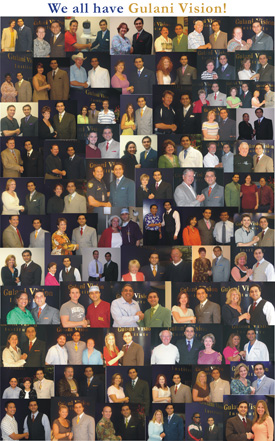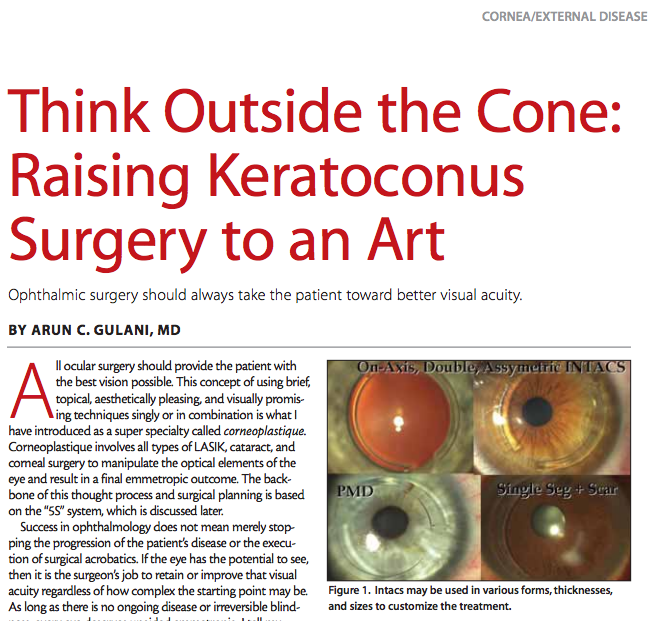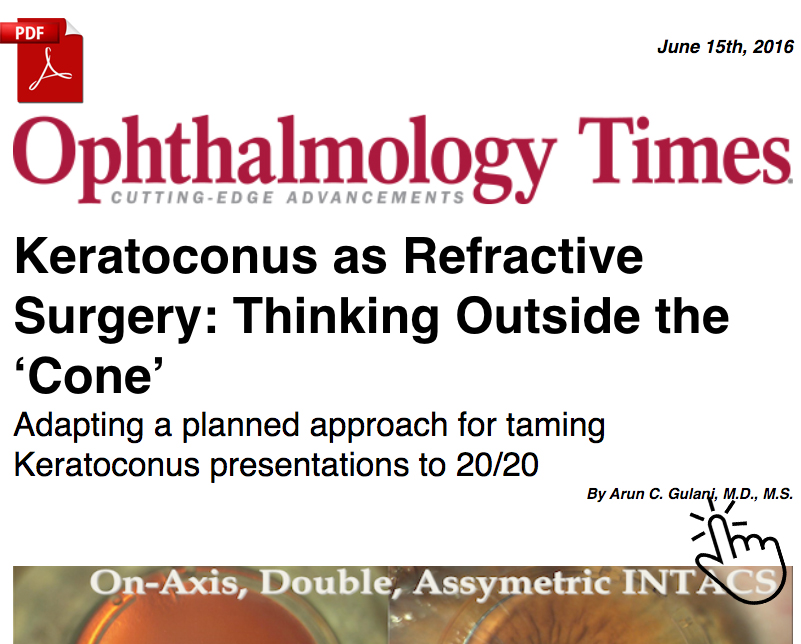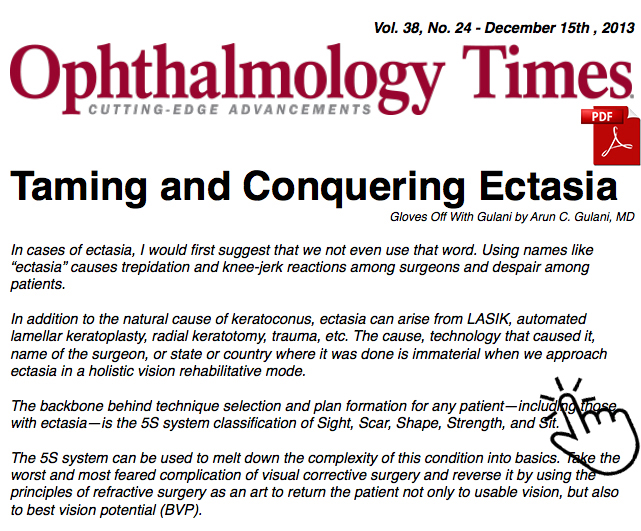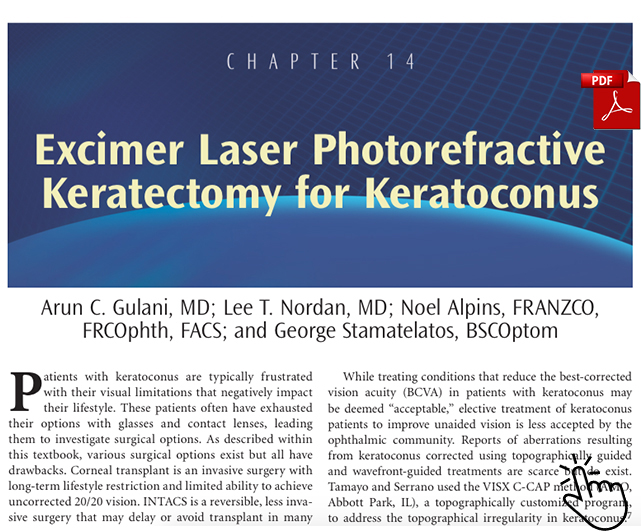
Keratoconus Treatment
Keratoconus is a condition of the eye where the cornea (clear front part) gradually becomes thinner and more conical in shape, thus, distorting vision. It is a progressive disease which typically affects younger adults. When the cornea bulges forward, becoming steeper in its curvature, it creates nearsightedness and perhaps astigmatism. Statistically, about one in every 2,000 Americans is affected by Keratoconus.
Keratoconus Treatments
In the early stages, soft contact lenses are effective in improving vision. As Keratoconus progresses, rigid contact lenses (RGPs) have been used to help flatten the cornea. If, or when, RGPs became too uncomfortable, a corneal transplant, many times, was the only option.
How Intacs® Work
In 2004, the Food and Drug Administration (FDA) approved Intacs® for Keratoconus treatment. This is an excellent option to postpone a corneal transplant and situations where RGPs have become ineffective or impractical. Intacs® surgery is done to allow Keratoconus patients to get back to effectively using contacts and glasses.
Intacs® are comprised of two micro-thin ring segments that are inserted into micro-channels that are surgically created in the cornea to decrease the distorted cone shape caused by Keratoconus. Once Intacs® are inserted, most patients cannot feel them, and they usually blend in with the eye’s shape and color much the way contact lenses do.
Like all of his surgeries, Dr. Gulani approaches Intacs® surgery like an art and he even teaches Keratoconus techniques nationwide on how to further customize this surgery by varying the Intacs® in size, thickness, position and pairing to address the unique cone pattern of each patient individually.
Intacs® surgery, in most cases, is reversible and with Dr. Gulani’s wide variety of surgical experience and knowledge, he can also combine Intacs® with a customized laser vision surgery to provide your best vision. Even when a patient has had a corneal transplant, Dr. Gulani can use his extensive surgical experience to combine treatments in individual cases, to provide the best possible vision. Since Intacs® have a high success rate for Ketatoconus treatment and the Intacs® procedure is a much less invasive procedure than a corneal transplant, Intacs® may be the right procedure for you.
Click Here to Schedule Your Keratoconus Treatment Consultation

 About Dr. Gulani
About Dr. Gulani
Dr. Gulani is a world renowned eye surgeon and Corneal Scar specialist. Former Chief of the Cornea service and Asst. Professor at University of Florida, School of Medicine; he is Founding Director of the Gulani Vision Institute.
Browse Our Site
